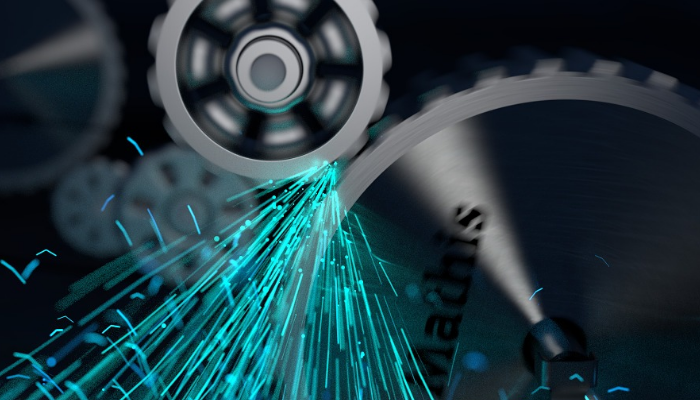What if everyone who said breakfast is the most important meal was wrong? Have you ever thought about that?
The people who subscribe to intermittent fasting, including me, don’t eat breakfast at all! Instead, they eat a big meal around 1pm and 8pm, then go around 16 hours without eating again until lunch the next day.
They promise it’s the optimal way to increase muscle and lower body fat at the same time. Plus, they can cut their amount of visits to the gym in half while gaining excellent results. Doesn’t that sound nice?
In this post, you’ll learn how intermittent fasting works and the reasons why you should consider implementing it in your life. Plus, I’ll address your main questions and concerns, because I’m sure skipping breakfast and not eating for more than 12 hours straight seems a bit nuts.
To be honest, I’m being a little selfish in writing this one. Because my motto is always to only write stuff that will give you value. But this one I wrote partly for me because I wanted to do more research on intermittent fasting.
What Is Intermittent Fasting?
Intermittent fasting is an eating pattern that’s designed around eating calories at specific times of the day and then not eating at other times.
It’s not some crazy diet where you only consume tofu and water. You eat the same foods as before, hopefully they’re healthy meals, but eat at different times than most people.
Unlike the traditional diet of eating a meal for breakfast, lunch, and dinner—with snacks all in between—people who do intermittent fasting skip a meal and don’t snack. For most people doing this and myself, the meal we skip is breakfast.
Intermittent fasting allows you to become leaner by shedding fat and building muscle, without bulking then not eating for a week straight. This is because when you eat affects how your body reacts and what it does with the food.
In other words, eating in a shorter window helps your body be more efficient with the calories. And this is how you’re able to lose fat and gain muscle at the same time.
I personally love intermittent fasting because it’s easy and simple to pick up. I don’t need a master’s degree in nutrition to know how to do this and get the benefits.
After reading this guide, you won’t need one either!
How Does Intermittent Fasting Work?
The whole reason intermittent fasting works is based on what your body does during the fed state and fasted state. So you first need to understand the difference between these two.
This is the fed state: After eating a meal, your body begins to break the food down and use what it can for energy during the day. But your body takes the energy you use to walk, talk on the phone, process information, and everything else you do directly from the food you just ate.
Your body isn’t taking energy from the fat stored in you because your insulin levels are high and energy is already accessible. Bottom line, fat burning isn’t happening in the fed state while your body is taking in and digesting food.
This is the fasted state: You haven’t consumed food for around 12 hours, so your body can’t just pull energy from its last meal. It needs a different source now, and to get energy it pulls from the stored fat in your body.
Your body can now burn fat because insulin levels are low and it doesn’t have a recent meal to use for energy. That’s where the fat loss comes from and how you get more lean.
The same process works when you workout in the fasted state. Energy needs to come from somewhere for your muscles to work properly, so your body uses its fat. Not to mention that growth hormones are produced more rapidly in the fasting state for muscle gains. (Also why you can work out less during the week cause you’re getting more out of your workouts.)
Again, if you eat consistently throughout the day your body rarely (or never) enters the fasted state that is so crucial to losing fat.
By shortening the window of when you eat, your body gets a wider window in the fasted state where you lose fat and build muscle.
Why Do Intermittent Fasting?
There is a diverse range of reasons to add intermittent fasting to your lifestyle. Let’s start with the most obvious reason.
1. Lose fat
The number one most notable reason to do intermittent fasting is to lose fat. When you go long stretches without eating, you give your body the green light to lose weight because you’re taking in fewer calories for longer periods of time. This calorie restriction during fasting forces your body to take energy from fat, which is exactly what you want, instead of getting energy from the meal you just ate.
2. Become more muscular
The byproduct of fasting also produces insulin sensitivity and increased growth hormone secretion, a process essential to building muscle. And not only are you becoming more muscular, because you’re also losing fat. Meaning you’re becoming more lean overall.
Everyone looks good when they’re lean.
This eating pattern will always have you ready for summer, hitting the beach, or when you need to look good naked for a wedding. Your flat stomach or six pack is on the way.
3. Pushes you to healthier foods
Don’t tell me your body is going to go on an extended fast and then crave unhealthy chips and pretzels. There’s no way!
After you to fast for 12+ hours, your body will want healthy, nutritious food to gain energy. And mentally putting in the effort to do intermittent fasting sets the tone that you’re going to be serious about losing fat, so you’ll naturally want to eat right.
On the other hand, if you’re not intermittent fasting and constantly eating all day, then unhealthy snacks won’t feel like a big problem. You can easily trick yourself that it’s only a little here and there. Or if you eat a terrible meal for breakfast, you can lie and say you’ll eat better for lunch and dinner.
4. Eat big without the consequences
How cool is it that you can eat the same food and same number of calories during intermittent fasting, because shortening the window when you eat makes all the difference? You don’t need to eat like a bird or go vegan to lose weight as many diets will recommend.
While I wouldn’t recommend eating McDonald’s no matter what you’re trying to do, if you continue to put your body in the fasting state each day then you’ll get the results with the occasional bad meal in between.
5. Practice discipline and self-control
I geek out about mastering total discipline over something. It’s truly an empowering feeling when your body desires something but you have the mental strength to resist it and come out on top.
With intermittent fasting, you can win this struggle to not eat or snack and feel the endorphins from doing so every day. Knowing your will directs your actions gives self-confidence for success in other areas at school, work, or in the gym. So it is about becoming leaner, but it’s also about becoming a mentally stronger individual.
6. Improve focus
Skipping breakfast and settling for a coffee and water during fasting has increased my focus in the morning. And I recognize that the more I focus on my writing, the less I think about food. It’s a winning system.
To back me up, researchers have found that decreasing calorie intake improves brain health and function. You learn more and remember more by waiting to eat.
7. Get more free time
Do you go out for breakfast? If you do, I bet you don’t realize how much time goes into thinking of where to eat, traveling to get food, waiting in line, waiting for your food, and then waiting to pay for the bill. Intermittent fasting allows you to avoid all of that.
Or if you’re running late for work or classes in the morning, you don’t need to spend any extra minutes making yourself some food because you’re not eating breakfast.
What could you do with an extra hour each day in the morning?
Sleep longer? Work out? Read? Get a head start on your most important activity of the day?
8. Clearer skin
On the offensive for clearer skin, intermittent fasting produces human growth hormone (HGH) and HGH can improve your skin. On the defensive against breaking out, eating at less times during the day gives your body a break from stress and helps you avoid the acne-causing foods like chocolate, bread, chips, and other heavy-carbohydrate foods.
Intermittent fasting does it all from the inside of your body to the outside for your skin.
9. Age better
Autophagy is the cleansing of your body’s cells to help you look young and decrease the effects of aging. And guess what? The less time you spend eating the more time you give autophagy to repair your cells.
Similar to clearer skin, intermittent fasting helps you age better by helping the body rejuvenate living cells and allowing cells to live longer when the body fasts. This maintenance is powerful for your body and why daily intermittent fasting helps you look your age, or younger.
10. Decreases risk of Alzheimer’s and Parkinson’s disease
While serving your body and skin, intermittent fasting doesn’t forget about your brain. This fasting helps your brain’s function and structure. Plus it reduces oxidative stress in the brain, which is a key contributor to brain defects.
Fasting causes more production of proteins in the brain, this leads to growing and connecting neurons, and stronger synapses. All this activity builds a healthier brain that reduces the risk of Alzheimer’s, Parkinson’s, and other brain-related diseases.
11. Helps you live longer
It’s also likely that intermittent fasting helps humans live longer.
A study at USC showed encouraging results for intermittent fasting. And this Scientific American article points out that it helped some animals live longer, while the jury is still out whether fasting helps humans live longer.
But my point is that even if fasting doesn’t help you directly live longer, it helps protect you from diseases like cancer, Alzheimer’s, and Parkinson’s. In that sense, it absolutely does help you live longer.
12. Save money
Because you’re not snacking and you’re skipping a meal, that’s less snacks and one whole meal you can go without during the day. Seven less meals a week.
Multiply seven less meals a week times 52 weeks and you get 364 less meals a year. If the average meal costs $8, you just saved yourself $2,912. All thanks to intermittent fasting.
Not to mention that intermittent fasting will help you avoid the unquantifiable future doctor and hospital bills from being overweight or obese. That could total $10,000 to $100,000+.
Why Isn’t Intermittent Fasting More Popular?
I don’t know the answer to that question. Give intermittent fasting enough time and it will produce incredible results for the inside and outside of your body. That’s backed by scientific studies.
But I do have a suspicion or conspiracy (whatever you want to call it), that big pharmaceutical companies and food companies are partly behind it. Here’s why.
There’s no money in fasting. For example, breakfast food companies are going to lose billions if all of America cuts out on eating breakfast. So what do these companies do? They ingrain the idea in everyone’s head that breakfast is the most important meal—with no science to back it up. Snack companies market their products all over the tv and internet to create desire for their unnecessary products.
And pharmaceutical companies lose billions when people use intermittent fasting to become healthier, eat more nutritious foods, exercise more, and require less medicine. So why would they publish research in articles that go against their business plan? They wouldn’t, and don’t.
It’s not just me who thinks this.
Editor in Chief of The Lancet, Dr. Richard Horton, said that much of the published scientific literature is simply untrue. Harvard Professor of Medicine, Arnold S. Relman, stated that the pharmaceutical industry has bought the medical profession. And other doctors have spoken out about the lies from the pharmaceutical industry.
The other reason it’s not popular is because people hate getting out of their comfort zone. If they’ve always eaten breakfast, they’re very unlikely to challenge themselves to do something different and go without food. They’re not going to question conventional wisdom, even if it’s worse for them.
As a Take Your Success reader, I’m hoping that you’re up to the challenge of fasting for a longer window and then seeing the results.
It’s encouraging when you know that the facts are behind intermittent fasting, not some companies false marketing plan about eating right when you wake up.
Final Words
With all of those benefits I listed above, there’s no reason not to try intermittent fasting for yourself.
Remember, it’s simple to plan. And over time you’ll train your body to make skipping a morning meal simple to execute as it becomes a habit you don’t think about.
Just follow an eating schedule like this:
- 1pm to 8pm – Eat two or three meals in this window
- 8:01pm to 12:59pm – Fast, but you’re allowed to drink coffee, water, or tea
If you’re a female, I’ve read that you should have a shorter fasting window because your body is biologically different from a male. So a woman’s eating schedule might look like this:
- 10am to 8pm – Eat two or three meals in this window
- 8:01pm to 9:59am – Fast, but you’re allowed to drink coffee, water, or tea
(You can read more about the effects of intermittent fasting for females here.)
To be clear, my true goal in this post is to get you to experiment it and try it out yourself. It could be the best thing you ever do for your body and you love it. You lose weight, get cut, and feel great. Or if it it’s not working for you for some reason, now you tried it.
Since you’re not going to die from intermittent fasting, the only risk is not trying it and never knowing how it works for you. Or do research on your own. Knowledge is power.
As you can tell, I’m personally a big fan of it and it feels great knowing I control my body and not the other way around.
And there you have the basics of intermittent fasting. Now it’s time for the gains!
*If you have any medical condition related to blood sugar (like diabetes or suffer from hypoglycemia), I highly advise you to discuss this with your doctor before making any big changes to your diet.
What questions do you have about intermittent fasting? Is it something you’re going to do now? Why or why not? I’d love to read what you think in the comments below.








Great article! One thing I read from another website is to lift weights right before you stop your fast for the day. Apparently thats when your growth hormone is at its highest so you’ll see better gains that way. I started intermittent fasting in March and stopped it in late May. I lost about 8 pounds and didn’t lose any muscle. I looked great and felt it too! It was perfect for me since I lived on campus. On campus dining makes it impossible to count calories and macro nutrients, but I didn’t have to count calories while fasting. Intermittent fasting is perfect for college students. I didn’t even have to do cardio, and my friends thought I was crazy until they saw the results. Unfortunately, I had to stop fasting for this summer. My job requires me to work outside so I need the calories and sugars from breakfast to stay alive in the Texas heat. If I ever need to lose weight again, then I’ll definitely be fasting again.
I haven’t tried working out right before I stop fasting, but that makes sense. I’m going to try it now. Yeah, with that kind of work it would be ridiculous to go without eating breakfast. Thanks for reading!
https://www.youtube.com/watch?v=KTDKnLsSGuw
Watching it now!
Great article Brian. I too am a big fan and can say with certainty that it works. I started IF in April and have lost 29lbs. All the effects you say are true, especially the sense of control and confidence. My mind is clearer and energy is up. Keep up the great posts.
Losing 29 pounds in a few months is impressive! You got to love intermittent fasting.